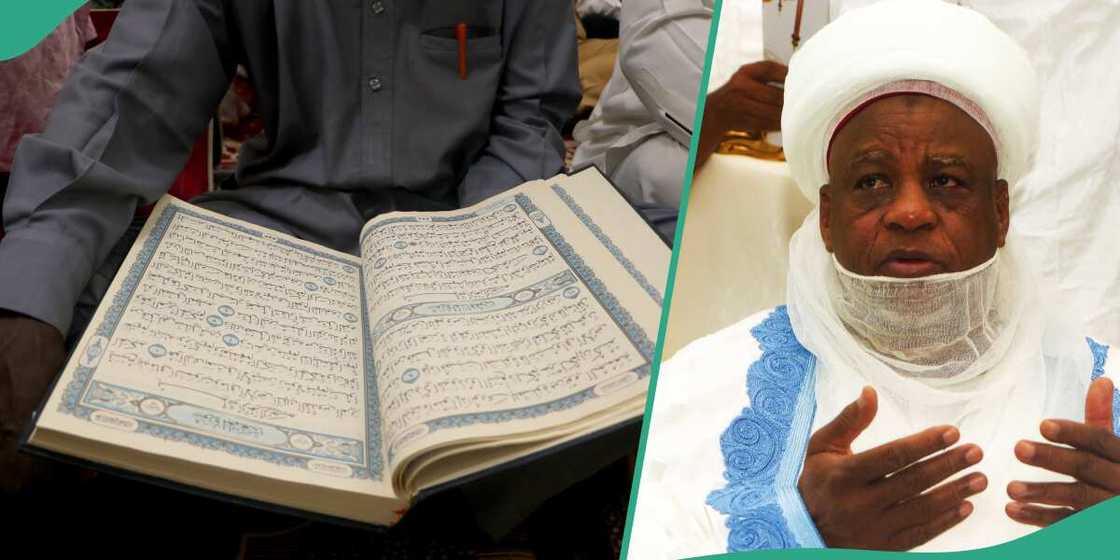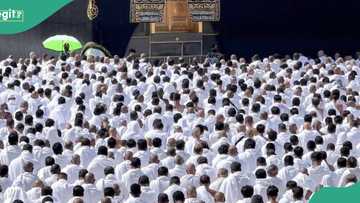Ramadan 2024: When Does Fasting Begin in Nigeria and What are The Rules?
Legit.ng journalist Ridwan Adeola Yusuf has over 9 years of experience covering religious activities in Nigeria and worldwide.
PAY ATTENTION: The 2024 Business Leaders Awards Present Entrepreneurs that Change Nigeria for the Better. Check out their Stories!
FCT, Abuja - In the next few days, Muslims across the globe will be marking the glorious month of Ramadan 2024.
Nigerian Muslims are not exempted. The start-date across countries of the world only varies due to time differences.

Source: Getty Images
Legit.ng reports that Ramadan is integral to the Islamic faith and sees Muslims all over the world commemorate the occasion through reflection and celebration.
It is observed by Muslims as a month of fasting.
PAY ATTENTION: Сheck out news that is picked exactly for YOU ➡️ find the “Recommended for you” block on the home page and enjoy!

Read also
Ramadan 2024: Sultan-led NSCIA announces tentative dates, asks Muslims to look out for new moon
Things to know about Ramadan 2024:
When does Ramadan 2024 start?
As the Islamic calendar is based around the lunar cycle, Ramadan rotates by approximately ten days yearly.
This year’s Ramadan will In Shaa Allah take place from Monday, March 11, 2024, to Tuesday, April 9, 2024, according to astronomical calculations.
The super new moon, named for its proximity to Earth, sets the stage for the onset of Ramadan.
How Muslims mark Ramadan
Ramadan is held during the ninth month of the Islamic calendar and is a time for spiritual reflection, acts of charity and spending time with loved ones.
It is a period for reflection, self-restraint, and warmth intended to bring Muslims closer to Allah, hence the abstention from earthly distractions like food and water, cigarettes, and sexual activity during daylight hours.
A modest meal is taken before dawn known as “suhoor” and after dusk known as “iftar” but nothing whatsoever is consumed in between, not even water.

Read also
Remains of Herbert Wigwe, wife, son arrive Rivers hometown for burial, over 50 jets expected
Fasting during Ramadan is a requirement for all Muslims from a young age, in some cases beginning as early as 10.
The reason Muslims fast is that Ramadan is one of the five pillars of Islam, the other pillars being faith, prayer, charity and making the pilgrimage to Mecca – the Holy City.
Before sunrise, Muslims will have a meal (suhoor) and another meal (iftar) after sunset. The only people who do not have to fast during Ramadan are children, the elderly, pregnant women and those who are travelling or who are ill.
Many practicing Muslims also perform additional prayers, especially at night, and attempt to recite the entire Holy Qur'an.
What are the rules of Ramadan?
A religious teacher, Ustadh Rafiu Olasunkanmi, spoke to Legit.ng and explained the rules guiding the observance of Ramadan.
One of the most important things is that he or she must be a Muslim. In other words, the Ramadan fast is not meant for non-Muslims.
Another regulation for Ramadan is that anyone who wants to fast should be someone that is capable of reasoning. Ramadan is not meant for anyone who is mentally-deranged.
Then, you must also be mature — age-wise. Children are not typically expected to fast during Ramadan until they reach puberty. Don't force a three-year-old to fast.
Any Muslim who wants to fast Ramadan must be pure from junub (an Islamic term meaning ritually impure due to sexual intercourse or seminal discharge), haidh (menstruation or period) or nifas (the blood which is discharged from a woman's womb during or after the childbirth).
What happens when Ramadan ends?
Eid al-Fitr, also called the "Festival of Breaking the Fast" is a celebration that marks the end of Ramadan. This year, it will begin at the first sight of the new moon in April.
When a crescent moon is spotted during Ramadan, it marks the beginning of the month of Shawwal and signals the first day of Eid al-Fitr, the feast that follows Ramadan.

Read also
IWD: Funke Akindele, other Nigerian female celebs' achievements in past 1 year that made fans proud
Read more about Ramadan:
- Ramadan: Cleric reveals when couples can have sexual intercourse during holy month
- Top seasonal goods in popular Lagos market and their cost price during Ramadan
- Luxury brands court Middle East with Ramadan collections
New moon sighting for Ramadan 2024 underway
Earlier, Legit.ng reported that the Nigerian Supreme Council for Islamic Affairs (NSCIA), led by its president-general Sultan of Sokoto, Alhaji Muhammad Sa’ad Abubakar III, urged Nigerian Muslims to observe the Sha’aban 1445AH crescent after sunset on Saturday, February 10, 2024, in preparation for Ramadan fasting.
The deputy secretary-general of the NSCIA, Prof Salisu Shehu, noted this information in a statement.
PAY ATTENTION: Stay Informed and follow us on Google News!
Source: Legit.ng



